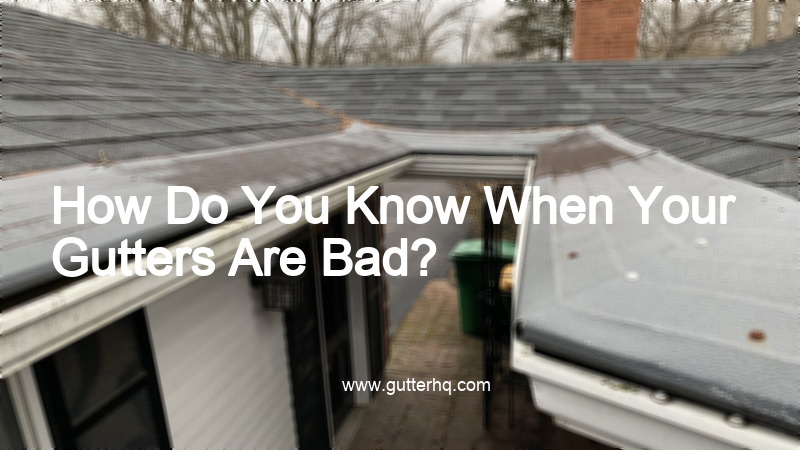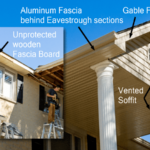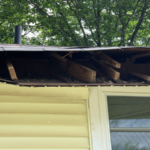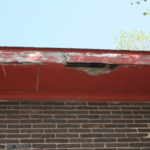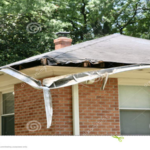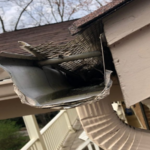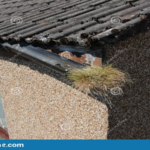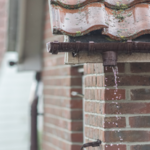- One of the first signs that your gutters are bad is if you notice water damage on the exterior of your home. This can be in the form of water stains, peeling paint, or even mold and mildew.
- Another sign that your gutters are bad is if you notice that they are sagging or pulling away from your home. This is usually a sign that they are full of debris and need to be cleaned out.
- If you notice any of these signs, it is important to call a professional to come and inspect your gutters. They will be able to tell you if they need to be repaired or replaced.
How do you tell if your gutters need to be replaced?
• Leaks: If your gutters are leaking, then they are not doing their job. Water can seep into your home’s foundation and cause serious damage.
• Cracks: Cracks in your gutters can cause leaks. If you see any cracks, then it’s time to replace your gutters.
• Rust: Rust can weaken your gutters and cause them to break. If you see any rust, then it’s time to replace your gutters.
What is the most common problem with gutters?
The most common problem with gutters is that they can become clogged with leaves and other debris. If not cleaned out regularly, this can cause water to back up and overflow, potentially causing damage to your home.
How often should house gutters be replaced?
Most houses have gutters that are either made of aluminum or vinyl. These materials are both durable and long-lasting, so most homeowners don’t have to replace their gutters very often. However, there are a few things that can shorten the lifespan of gutters and cause them to need to be replaced more frequently. For example, if gutters are constantly exposed to sunlight, they can become faded and brittle over time. Additionally, if gutters are not properly maintained and regularly cleaned out, they can become clogged and damaged.
In general, it is a good idea to inspect gutters at least once a year to check for any damage or wear and tear. If gutters are starting to show signs of wear, such as cracks, holes, or rust, then they should be replaced. Gutters should also be replaced if they are sagging or pulling away from the house.
How long do gutters typically last?
The average lifespan of a gutter system is 20 to 30 years. However, with proper maintenance and repair, gutters can last much longer.
Gutters are exposed to the elements 24/7, which can take a toll on their lifespan. The sun, wind, rain, and snow all contribute to the deterioration of gutters. Additionally, leaves and other debris can clog gutters, causing them to sag and break.
To prolong the life of your gutters, it is important to regularly clean them out and inspect them for damage. If you spot any damage, it is important to repair it as soon as possible to prevent further damage.
Overall, with proper care and maintenance, gutters can last for many years. However, if you neglect your gutters, they will not last as long. If you are unsure of how to properly care for your gutters, you can always hire a professional to do it for you.
How do I test my gutters?
To test your gutters, first make sure that they are clean and free of debris. Next, check to see if the gutters are properly attached to the home. Then, using a garden hose, slowly pour water into the gutter and watch to see if the water drains properly.
Should you replace gutters or roof first?
This is a difficult question to answer without knowing more about the specific situation. If the gutters are leaking and causing damage to the roof, then it would make sense to replace the gutters first. However, if the roof is leaking and causing damage to the gutters, then it would make sense to replace the roof first. Ultimately, it is important to consult with a professional to get the best advice for your specific situation.
What happens when gutters fail?
If your gutters are not functioning properly, it can lead to a number of problems. First, if water is not draining properly, it can cause your gutters to overflow, which can lead to water damage on your home’s exterior or even flooding in your basement or crawlspace. Additionally, if water is allowed to pool in your gutters, it can create an ideal environment for mosquitoes and other pests. Finally, if your gutters are not cleaned out regularly, they can become clogged with leaves, twigs, and other debris, which can cause them to fail entirely.
Are gutters easy to fix?
Gutters are not easy to fix. They are made of metal and can be very heavy. They also can be very difficult to reach, depending on the height of your house. If you have a lot of trees around your house, then the leaves can clog up your gutters and cause them to overflow.
How do you fix gutters that don’t drain?
If your gutters are full of debris and not draining properly, you’ll need to clean them out. You can do this yourself by using a ladder to reach the gutters and using a garden hose or a pressure washer to remove the debris. If you don’t feel comfortable doing this yourself, you can hire a professional to do it for you.
Bottom Line
If your gutters are leaking, sagging, or full of debris, it’s time to replace them. Gutters play an important role in protecting your home from water damage, so it’s important to keep them in good condition.
